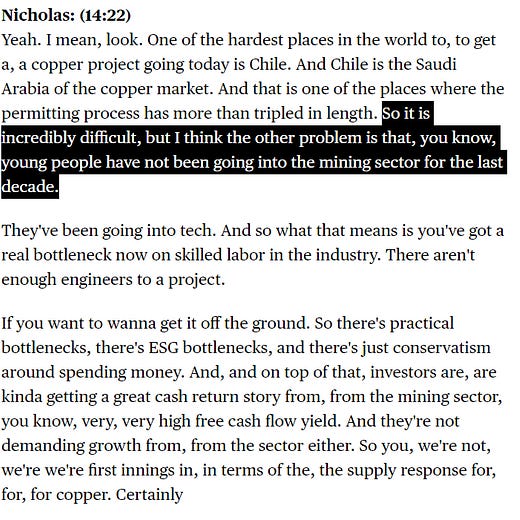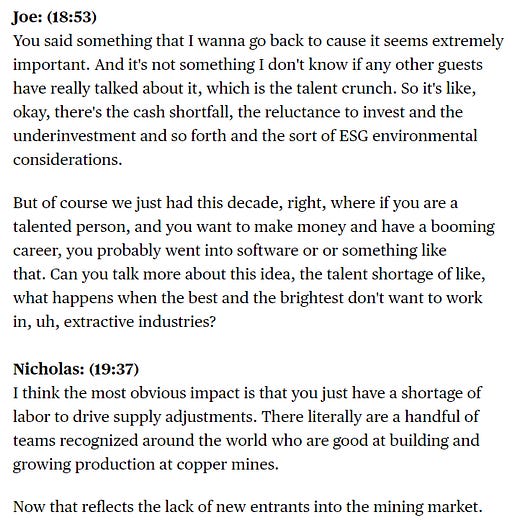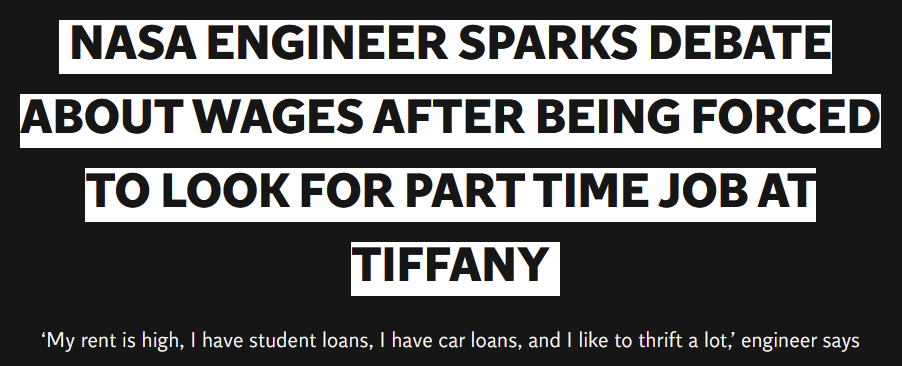Misallocation of (human) capital
Wasting a generation of clicks optimization
Boosting misallocation of capital
Misallocation of capital is a catchphrase describing what happens when investments are poured into the wrong activity. To some extent, this is unavoidable, as forecasting the best use of capital is a tricky business. Predicting the future is hard, except after the fact of course.
This by the way is why a healthy economy needs recession now and then. The wrong decisions are revealed. The lousy company shrinks or goes bust, and its machinery, offices, people, and capital are redeployed in a better venture.
So it is likely impossible to bring to zero the misallocation of capital. But it is possible to make it happen more often than necessary. This is usually what happens when capital is too abundant.
For example, when central banks spend a decade and a half injecting liquidity (capital) into the financial system. If money is easy to get, why be afraid of wasting it?
This is how you end up with companies like Uber or WeWork, whose growth is only possible by selling a product below its cost. You sell $1 at 90c, and scale up the operation to (not) turn a profit.
During the years it takes to burn through all the free VC money, you can pay handsome salaries to the employees and management. So society as a whole loses, but insiders get rich at least …
The worst waste is not money
Economists and finance people like to boil down everything to numbers. So they will write endlessly about the waste of financial capital. But they look at the trees and miss the forest.
Don’t get me wrong. A large part of the shortages we are experiencing is because we collectively invested billions in Uber shares instead of new factories, refineries, mines, and oil drilling.
But the worst is all the people that specialized in that waste of capital.
What prompted the idea for this email was the tweet below:
This is a part of a transcript discussing how we are going to face a massive copper shortage in the incoming years. Some of the reasons are easy to guess. Increasingly complex regulations or low industry capital expenditure for example.
But one large and undiscussed hurdle is a shortage of talent in the field.
Among new graduates, plenty went into IT, marketing, finance, law, and other “intellectual” fields.
Oil&gas, mechanical engineering, mining, and industrial tooling, are dirty, unappealing fields, when you can sit in a cool tech giant campus instead.
They also pay a lot less and don’t score you many social points, except maybe in the most conservative political leaning crowd.
It’s not like we had no warning. For example, the always insightful Irina Slav (I really recommend her substack) was ringing the alarm bell 3 years ago, and even before that.
https://oilprice.com/Energy/Energy-General/Oil-Industry-Faces-Imminent-Talent-Crisis.html
Already in 2013, Facebook's leading data scientist warned us that the smartest people of his generation were wasting their talents. We did not listen.
The atoms versus bit divide, workers edition
This article is a bit ironic as I am a poster child of such misallocation. A trained biochemist in molecular biology, I am now a writer and e-commerce entrepreneur. The main reason was a lack of opportunity in Academia + terrible work conditions and poor salary considering the efforts and lifestyle required (like changing living location regularly for the next 10-15 years, without much choice or control).
It takes around a decade from entering university to the first years of experience on the job to train a good engineer. Or a scientist. Or a geologist.
Please note this is not an American issue, but a West-wide issue. For example in Europe, the problem is the same. A university friend of my wife says that the Nokia factory in their hometown cannot find enough qualified candidates, no matter how hard they look. Their main limitation is not capital, finding clients, or production capacity. But manpower.
I mean, what does it say about our society if NASA Engineers feel like they need extra part-time jobs?
https://www.independent.co.uk/life-style/nasa-engineer-second-job-apple-tiffany-b1960185.html
While this might be an extreme case of personal finance mismanagement, when did you ever hear about a Facebook engineer saying they need to take an extra job at Tiffany?
Recently in investing, atoms are better than bits. But for workers, this has been a bad choice for most of a decade. And they accordingly stopped working on improving the physical world.
Long-term consequences
The first conclusion is that the current shortages in energy and commodities are likely to stay.
People that left the field will need retraining. Recently retired people might need higher salaries to be tempted back into work.
Contrary to what politicians and central bankers believe, throwing money at the problem will not help.
Repairing a broken economy means having an adequately trained workforce. We cannot relocate industries from China without an army of experienced engineers and scientists.
So expect plenty of delays on all the ambitious and unrealistic plans to increase industrial output in the USA and Europe.
Making matters worse is the intense competition for workers in Arizona, including from U.S. semiconductor giant Intel, which has built a long-standing relationship with the state and local governments and communities during its 40 years there.
Similarly, the already too late oil drillings and mine openings will get more delays and/or be executed less than optimally.
All together, this should be positive for
Industries with production very much in demand (chips)
Commodity producers with operating and long-lasting assets (one of the main reasons I own Petrobras and Rio Tinto)
Service providers that kept their highly specialized workforce intact in the downturn (like Transocean/RIG)
Lastly, this means that non-IT technicians are likely to see a big pay raise. Biologists, Engineers, Chemists, applied Physicists, Geologists, … anyone with technical skills and dealing with physical problems is likely to do better.
Hopefully, this will help Western countries redirect their talents toward things like reaching Mars, curing cancer, and cheap energy.
And fewer online ads, dating apps, and subscription-only $2000 exercise bikes (seriously? …).
So, what is a short-term problem can become a long-term good thing.
One can hope…








